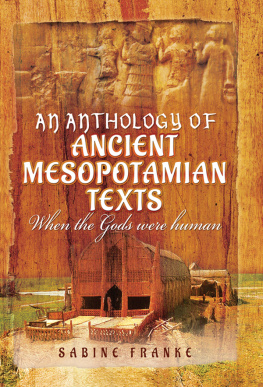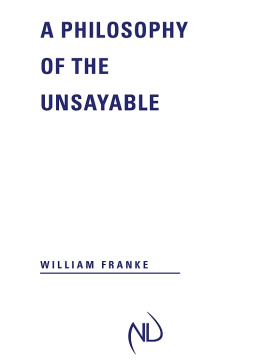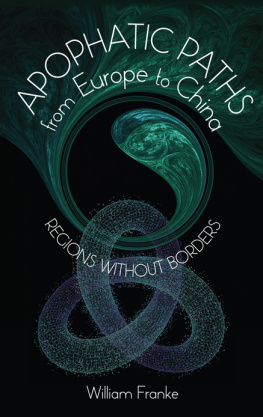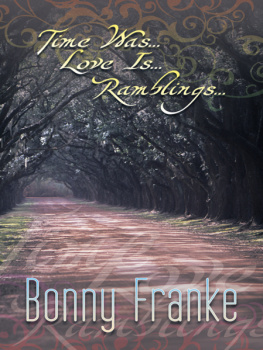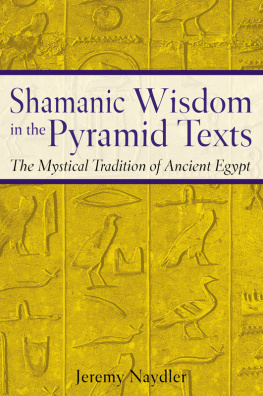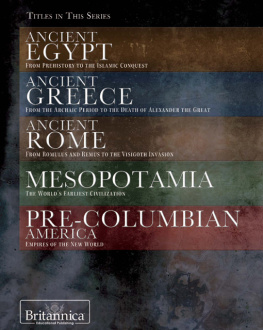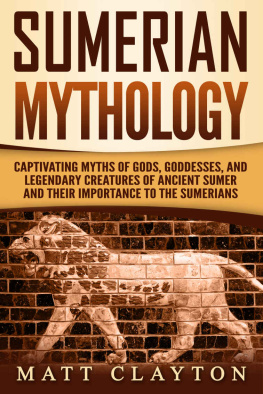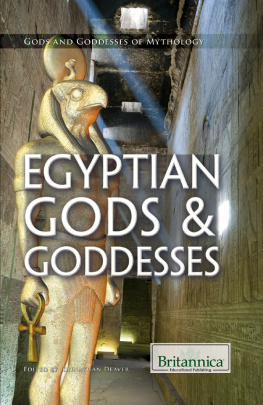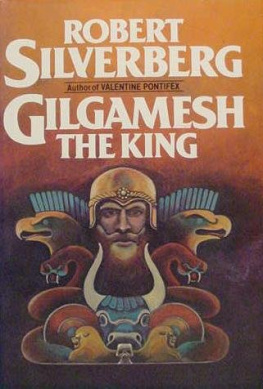
An Anthology of Ancient Mesopotamian Texts
An Anthology of Ancient Mesopotamian Texts
When the Gods Were Human
Sabine Franke
First published in Great Britain in 2016 by
Pen & Sword Archaeology
an imprint of
Pen & Sword Books Ltd
47 Church Street
Barnsley
South Yorkshire
S70 2AS
Copyright Sabine Franke 2016
Original Edition Als die Gtter Mensch waren. Eine Anthologie altorientalischer Literatur (2013) by Philipp von Zabern, an imprint of WBG (Wissenschaftliche Buchgesellschaft), Darmstadt, Germany
ISBN 978 1 47383 434 7
eISBN 978 1 47384 774 3
Mobi ISBN 978 1 47384 775 0
The right of Sabine Franke to be identified as the Author of this Work has been asserted by her in accordance with the Copyright, Designs and Patents Act 1988.
A CIP catalogue record for this book is available from the British Library
All rights reserved. No part of this book may be reproduced or transmitted in any form or by any means, electronic or mechanical including photocopying, recording or by any information storage and retrieval system, without permission from the Publisher in writing.
Pen & Sword Books Ltd incorporates the imprints of Pen & Sword Archaeology, Atlas, Aviation, Battleground, Discovery, Family History, History, Maritime, Military, Naval, Politics, Railways, Select, Transport, True Crime, and Fiction, Frontline Books, Leo Cooper, Praetorian Press, Seaforth Publishing and Wharncliffe.
For a complete list of Pen & Sword titles please contact
PEN & SWORD BOOKS LIMITED
47 Church Street, Barnsley, South Yorkshire, S70 2AS, England
E-mail:
Website: www.pen-and-sword.co.uk
Preface
When the gods were human the beginning of the Old Babylonian tale of the deluge refers to a mythical period of time before mankind, when the gods had to do all chores themselves. They created humanity to ease their burden. How the people in the ancient Near East modern Iraq and Syria viewed and went about their lives is shown in the extraordinarily diverse and extensive literature of the region, which has been written down since about 2000 BC and preserved throughout the centuries in temples, palaces and private residences.
Ancient Near Eastern literature beyond the famous epic is still awaiting discovery by a wider readership. From a wealth of material, predominantly narrative texts have been chosen for this anthology.
After the gods created mankind in the tale of the deluge, the god presented here.
An invocation of the tooth worm against toothache, against the crying of a baby; a plea for relief from debts, and a dialogue about the indifference of the gods (the Babylonian theodicy) show the dayto-day engagement of ordinary people with the world and the gods. A dialogue between a master and his servant, who always agrees with him, contains all satire aside a discussion of the question of what constitutes a meaningful life.
In fairytales such as the story of the revenge of a pauper on an arrogant mayor, or the search of King for the herb of fertility, which carries him on the wings of an eagle up into the sky, desires, fears and dreams are moulded into a timeless literary form.
The goddess Ishtar is the mightiest goddess of the ancient Near Eastern pantheon. She is able to journey into the underworld to attempt to defeat this land without return. King of Uruk reports, with pride and rich imagery, his success against the invading Gutian hordes.
The translations are based on the academic editions listed in the respective notes, but they use their own free, interpreting phrases and amendments to facilitate understanding. Only few texts of Akkadian and Sumerian literature are preserved completely. Gaps in the texts are marked, regardless of their extent, by , and amended and uncertain passages are in italics. Text (in round brackets) has been added for better understanding.
I am greatly indebted to the translators, who collaborated promptly and willingly, and who despite many other obligations have produced easily readable and intelligible translations, each with footnotes and a bibliography.
Students have a rough ride at times we can probably all recognise the problems, vexations and disappointments of a student. One students labours and sufferings provide the final tale in this volume a small compensation for the efforts of all the scribes to whom we owe these texts.
Sabina Franke
When the Gods were Human:
The Ancient Near Eastern Tale of the Deluge
Rosel Pientka-Hinz
(The world order of the gods: early years)
When the gods were human they carried the hardship, they hefted the hamper.
The hamper of the gods was large, the hardship great, excessive were the tribulations.
The great let the Igigu bear the hardship sevenfold.
Anu, their father, was king; their advisor was the hero Enlil. Their throne-bearer was . They clasped the bottle (for casting lots) by its cheek, cast the lot whereupon the gods apportioned [the spheres of influence]:
Anu ascended to the sky, Enlil took the earth for his subjects .
The bolts and the meshes of the sea were placed before the far-seeing .
Those of descended forever.
Idle were those of the sky, they let the Igigu bear the hardship.
The gods began to dig rivers the streams of the gods , life for the land.
The Igigu began to dig rivers the streams of the gods, life for the land.
The gods dug the river Tigris and then the Euphrates .
They opened springs in the depths of the groundwater, wells they founded.
(the groundwater) Apsu, of the land.
amidst it, they elevated its tips.
They heaped up the mountains, the years of the conscription to labour they counted.
They set up the great swamp, the years of the conscription to labour they counted.
(The rebellion of the Igigu)
For 2,500 years in excess the gods bore the hardship day and night.
(Then) they sat down and began to berate (each other); [they] muttered in the pits:
Come, we will apply to the throne-bearer so that he takes away our great hardship from us!
The god , the advisor of the gods, the hero come, we will lift (him) from his seat!
Enlil, the advisor of the gods, the hero, come, we will lift (him) from his seat!
We opened his mouth and spoke to the gods, his brothers:
Let us beat the throne-bearer of old times; will appoint Enlil ! another he will appoint , before us .
(We incite the gods further)
The advisor of the gods, the hero come, we will lift (him) from his seat!
Enlil, the advisor of the gods, the hero come, we will lift (him) from his seat!
Now call out for the fight, we will stage a battle!
The gods listened at his behest, they put fire to their tools,
They set fire to their shovels, put their hampers to the torch.
They clasped each other when they approached the gate of the sanctuary of the hero Enlil.
It was night at half-watch, the house was surrounded, the god does not know [it].
It was night at half-watch, the was surrounded, Enlil does not know [it].
Yet then took note (and) let all be locked, he seized the bolt, checked the gate.
Then Kalkal awakened , they heard the clamour of the Igigu .
And Nusku awakened his master , let him rise from the sleeping berth:
My lord, surrounded is your house, the fight is fast approaching your gate .
Enlil, surrounded is your house, the fight is fast approaching your gate.
Next page
